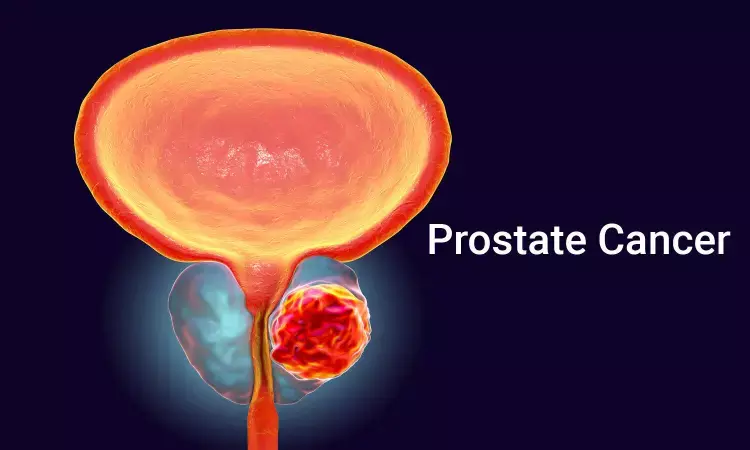- Home
- Medical news & Guidelines
- Anesthesiology
- Cardiology and CTVS
- Critical Care
- Dentistry
- Dermatology
- Diabetes and Endocrinology
- ENT
- Gastroenterology
- Medicine
- Nephrology
- Neurology
- Obstretics-Gynaecology
- Oncology
- Ophthalmology
- Orthopaedics
- Pediatrics-Neonatology
- Psychiatry
- Pulmonology
- Radiology
- Surgery
- Urology
- Laboratory Medicine
- Diet
- Nursing
- Paramedical
- Physiotherapy
- Health news
- Fact Check
- Bone Health Fact Check
- Brain Health Fact Check
- Cancer Related Fact Check
- Child Care Fact Check
- Dental and oral health fact check
- Diabetes and metabolic health fact check
- Diet and Nutrition Fact Check
- Eye and ENT Care Fact Check
- Fitness fact check
- Gut health fact check
- Heart health fact check
- Kidney health fact check
- Medical education fact check
- Men's health fact check
- Respiratory fact check
- Skin and hair care fact check
- Vaccine and Immunization fact check
- Women's health fact check
- AYUSH
- State News
- Andaman and Nicobar Islands
- Andhra Pradesh
- Arunachal Pradesh
- Assam
- Bihar
- Chandigarh
- Chattisgarh
- Dadra and Nagar Haveli
- Daman and Diu
- Delhi
- Goa
- Gujarat
- Haryana
- Himachal Pradesh
- Jammu & Kashmir
- Jharkhand
- Karnataka
- Kerala
- Ladakh
- Lakshadweep
- Madhya Pradesh
- Maharashtra
- Manipur
- Meghalaya
- Mizoram
- Nagaland
- Odisha
- Puducherry
- Punjab
- Rajasthan
- Sikkim
- Tamil Nadu
- Telangana
- Tripura
- Uttar Pradesh
- Uttrakhand
- West Bengal
- Medical Education
- Industry
Combination of MRI and new blood test may improve prostate cancer detection: Lancet

Sweden: The addition of a novel blood test, the Stockholm3 test, to the MRI-targeted biopsy approach for prostate cancer screening can reduce overdetection whilst maintaining the ability to detect clinically significant cancer, show researchers at Karolinska Institutet in Sweden.
The same group of researchers had earlier shown that magnetic resonance imaging (MRI) could reduce overdiagnoses and thereby improve prostate cancer screening. In the recent study, published in The Lancet Oncology, they showed that the addition of the Stockholm3 test can reduce the number of MRIs performed by a third while further preventing the detection of minor, low-risk tumors.
"Overall, our studies show that we have identified the tools needed to be able to carry out effective and safe screening for prostate cancer. After many years of debate and research, it feels fantastic to be able to present knowledge that can improve healthcare for men," says Tobias Nordström, associate professor of urology at the Department of Clinical Sciences, Danderyd Hospital at Karolinska Institutet, who is responsible for the STHLM3MRI study.
Current screening methods – PSA (prostate-specific antigen) tests combined with traditional biopsies – result in unnecessary biopsies and the detection of numerous minor, low-risk tumors (overdiagnosis). Consequently, no country except Lithuania has chosen to introduce a nationwide prostate cancer screening program, as the benefits do not outweigh the disadvantages.
On July 9, 2021, results from the STHLM3MRI study were presented in The New England Journal of Medicine, indicating that overdiagnosis could be reduced by substituting traditional prostate biopsies with magnetic resonance imaging (MRI) and targeted biopsies. The new results, now published in The Lancet Oncology, show that the addition of the Stockholm3 test, which was developed by researchers at Karolinska Institutet, can be an important complement. It is a blood test that uses an algorithm to analyze a combination of protein markers, genetic markers and clinical data.
"The availability of MRI in healthcare will be a limiting factor. We now show that a novel blood test as an adjunct to MRI can reduce the number of MRIs performed by a third. Compared with traditional screening, overdiagnosis is reduced by as much as 69 percent. At the same time, the number of biopsies is halved, while we can find just as many clinically significant tumors", says Martin Eklund, associate professor at the Department of Medical Epidemiology and Biostatistics, Karolinska Institutet, with joint responsibility for the STHLM3MRI study.
STHLM3MRI is a randomized study that was conducted between 2018 and 2021 with 12,750 male participants from Stockholm County. The participants provided an initial blood sample for PSA analysis and analysis using the new Stockholm3 test. Men with test results showing elevated PSA levels were then randomly selected for traditional biopsies or MRI. In the MRI group, biopsies were conducted strictly on suspected tumors identified by MRI.
"Separate use of the Stockholm3 test and MRI has previously been shown to be cost-effective. We have now analyzed the cost-effectiveness when these tools are combined and will shortly report exciting results from that analysis," Tobias Nordström concludes.
Reference:
The study titled, "Prostate cancer screening using a combination of risk-prediction, MRI, and targeted prostate biopsies (STHLM3-MRI): a prospective, population-based, randomised, open-label, non-inferiority trial," is published in The Lancet.
DOI: https://www.thelancet.com/journals/lanonc/article/PIIS1470-2045(21)00348-X/fulltext
Hina Zahid Joined Medical Dialogue in 2017 with a passion to work as a Reporter. She coordinates with various national and international journals and association and covers all the stories related to Medical guidelines, Medical Journals, rare medical surgeries as well as all the updates in the medical field. Email: editorial@medicaldialogues.in. Contact no. 011-43720751
Dr Kamal Kant Kohli-MBBS, DTCD- a chest specialist with more than 30 years of practice and a flair for writing clinical articles, Dr Kamal Kant Kohli joined Medical Dialogues as a Chief Editor of Medical News. Besides writing articles, as an editor, he proofreads and verifies all the medical content published on Medical Dialogues including those coming from journals, studies,medical conferences,guidelines etc. Email: drkohli@medicaldialogues.in. Contact no. 011-43720751


